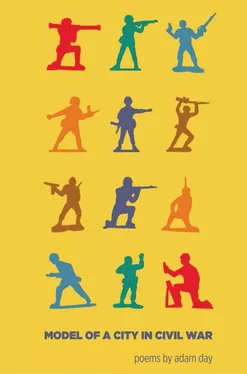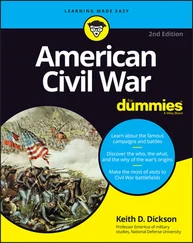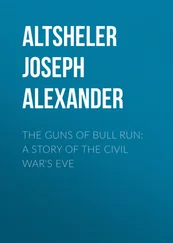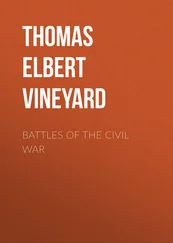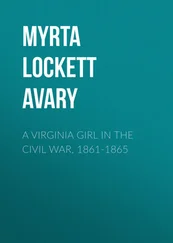Here sits Queen Anne at Hockley Hole, London
for the dog and bull show.
A rope is tied ’round the root of the bull’s horns and fastened
to an iron stake,
its slobbery gray nose blown full of pepper to enrage it before
it’s baited. Meanwhile,
men hold dogs by the ears. Let loose, the goal for the dog is to hold for all
hell to the bull’s
snout — the most sensitive spot other than the genitals—“If a bull had balls
hanging from its face
they’d be attached to his snout.” Now, either the dog remains
fixed, or is thrown
tearing out the flesh it has laid teeth on. The bull, a skeptic in dialogue
with hope, works
to slide a horn under the cur’s belly, and throw it, so that a dog’s side
is often ripped open
entrails protruding like wet sausage—“Yes, it provides much joy
for the community,
and the animals certainly gain a sense of dignity in achievement.”
Goya’s “Portrait of the Family of Charles IV”: intermarriage preserved
the family’s wealth
and the compact features of mongoloids. Deformed by a hunting accident,
Charles — subsidiary
to his wife, his mouth full of gravel — spent his power slowly collecting
watches and wrestling
with grooms in the stables — like male otters, they bite each other’s necks,
drawing blood, but
thick layers of fat prevent serious injury. We see only the profile of Doña
Carlota Joaquina,
the King’s eldest daughter, more oversexed than even her mother, whose “chief
renown was for a readiness
that kept her in a state of tropical humidity as would grow orchids
in her drawers
in January” (“My mouth may be scalded but I’m still noticeably wet,”
she wrote a lover.)
Tennessee Williams had a little black dog named Bibbles whom
he kept as a minotaur
keeps his women — he set to kicking it one day because the creature
seemed to him
too promiscuous, too “Whitmanesque” in its affections. Seventy-one
and choking
on the cap of a medicine bottle — nothing like the brass bit in a horse’s spit-foamed
mouth, nothing
like the rough-trade neck-ties that had gagged him. Tell us a joke; tell us a story
to make us all
laugh. The cops: “If that’s aspirin on your dresser, what’s the needle for?”
Him: “I can’t stand the taste
of the stuff.” Tennessee — the eternal that is ever-present in our midst. Sexually
incontinent. Panic
insomnia, tooth-rot, green liquid pouring from the bowels. Still
he has a physical
presence. You could imagine him hitting someone. “I don’t think it’s sex
I want. There’s no great
hankering for that. It’s the quiet, humdrum dread of coming up alone to this little
room at night, to that
emptiness where God would be if God were available. And going to bed and turning
my face to the wall.”
ANOOSH’S OBITUARY FOR HIMSELF, TO HIS SON
Armaan, during the Revolution your mother
left, and I was asked to strangle a collaborator:
baggy-trousered, with a stoat-face. The house’s pink wallpaper
was covered with maids and horses. Over the shower curtain
his wife’s pantyhose hung. Chair-tied, sweat ran the rims
of his glasses. A lamp threw cold light, promises
were made. I’m a father. Drunk, I adjourned to the driveway
to shovel snow. There were spider webs of moisture
in the trees and hedges. For coffee, I used ice cream
in place of the missing milk, sick of what I knew…
As for your mother, Armaan, I can only say I feel better
about her infidelities when I’m well-dressed. And I am.
Walking from the house into a field
of snow, the moon eases from its blue
blouse, half-blinded by the hills. Eider
shadows skate past the pond boat
overturned on shore. There is
the fatty scent of pine, like the smell
of marrow. Things are blooming
that shouldn’t yet. She reaches up
to her shadowed face to touch
something real but imagined, like
some invented criminal pleasure,
like making a virtue of a flaw.
The streets, black with rain, I walk
past the British Museum to University College,
where the Socialist Workers Party is screening Land and Freedom .
I sit in the audience, looking
for women — confusing jargon: class intercourse,
sexual warfare — aware of the probability
of defeat. We can’t know much
of each other. I fell in love with Marx
several years before, though, in life, he despised
the lower classes — as we despise ourselves — making him
one of us. How could he not be—
writing Engels for ten pounds here, twenty pounds
there. Boils, jaundice, grippe; three children
dead of poverty; bread and potatoes
for days; and not an unbroken piece of furniture
in the house. He writes a friend, “I was so depressed
last night that I would have put my head
in the oven, if I wasn’t too frightened of the children
to go into the kitchen. After the anarchists
and communists lose to Franco the lights
come up, stout is served in the student annex,
where I talk with two Argentine friends about anything
but politics or exile, the añoranza : soccer mostly, and the black
girl across the room, Elizabeth, who is looking
at me, and away, and back again. Outside, she tells me
about her professor-parents, her home in Sussex
where sweet William pins itself to the slats of the front porch,
where she walks out to horse-stables in the morning
in jodhpurs and a tank-top. Then, scattershot
of car horns — a hand suddenly unpocketed, the hairs
on our arms touching — even at night, the riot
of poppies in spring. Beside our confused feet
a lung-sore bum with his Guardian tent and cardboard mat
is sleeping, as I push her breasts up beneath her sweater.
Months like this passed before I left for Stockholm
carrying the anonymous thing that we’ve always
known without having learned,
that we’ll lose, that speaking into silence, our gods,
parent-ghosts, and lovers will not
hear us. Still, call after him. Awkwardly call this man,
“Bear,” of all things, as his family did, through hob
and tobacco smoke — just up from bed, he’s still sitting
in his study on the Isle of Wight, where he has put
his head down, the blue capillaries under skin
as thin as rice paper, with the hard-focused eyes
of a man one week at the bottom of a lake—
and what is the vocabulary for that, how
can words deliver affection; I say it is raining
over the mountains and mean I am rolling onto my side
to fall asleep next to you.
SLEEPING WITH UNCLE LESTER
We walked from town to her land
through clotted darkness
and frozen pastures, heads brushing
bottles hung on low branches. The old
kitchen, cut by a line of ragged shirts
and socks, smelled like wet bark. Jars
of fruit salts and redcurrants, tins
of dried onions and parsnips rattled
when we walked. We went to bed,
that’s all. I woke with her uncle Lester
beside me, slack-chinned and thin, face
and neck a wash of white stubble
and the high turpentine of fetid sweat.
Lester’s wife died when their Chrysler
broke down as she hemorrhaged
from miscarriage. I got up
on my elbows; out the window
was the background of an otherwise dull
family photo: blue skies and egg shells
blown across a bald yard, rain pattering
the stinking fine dust, and steam billowing
up from somewhere — a tree
of backlit breath, and Lester’s grindy voice
like the cold of close metal, “Hey, dunghill.
Lookit — you’re blockin’ the view.”
Читать дальше
